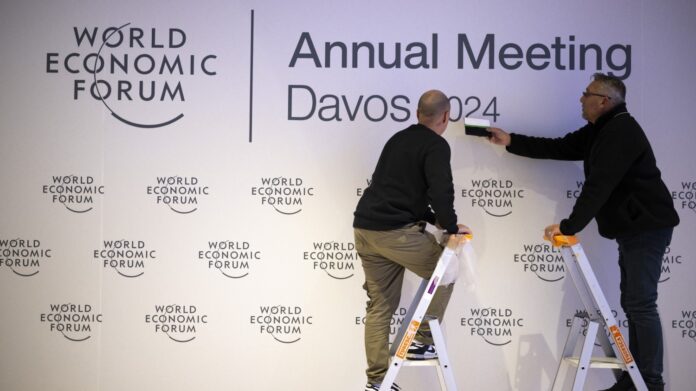The Chief Economists Outlook report released by the World Economic Forum (WEF) on the occasion of its annual session in Davos on Monday says that the global economy will struggle with tight financial conditions in 2024.
The majority of chief economists surveyed anticipate a weakening global economy this year, with 43% expecting conditions to remain the same or improve. There is a consensus that both labour markets (77%) and financial conditions (70%) are likely to relax in the coming year.
Despite a general scaling back of high inflation expectations globally, regional growth forecasts are mixed. No region is expected to experience very strong growth in 2024.
The report, compiled by the World Economic Forum’s Centre for the New Economy and Society, reflects inputs from chief economists across public and private sectors.
Saadia Zahidi, Managing Director of the World Economic Forum, highlighted the fragile nature of the current economic landscape, stressing the need for global cooperation to foster sustainable and inclusive growth.
She noted that while global inflation might be easing, growth is slowing, financial conditions are tight, and geopolitical tensions and inequalities are intensifying.
In terms of regional outlooks, South Asia and East Asia, and the Pacific maintain a positive stance with a majority expecting at least moderate growth in 2024.
However, China’s growth expectations are more tempered at 69%, due to factors such as weak consumer spending, industrial production challenges, and property market issues.
Europe’s economic forecast has deteriorated since September 2023, with 77% of respondents now anticipating weak or very weak growth, nearly double the previous survey’s figure.
The outlook is also less optimistic in the United States and the Middle East and North Africa, with around 60% of respondents expecting moderate or stronger growth, a decrease from previous figures.
Conversely, growth expectations in Latin America, the Caribbean, sub-Saharan Africa, and Central Asia have seen a notable improvement, though the forecast remains for moderate growth overall.
The report also indicates a rising concern among economists regarding geo-economic fragmentation.
Approximately 70% expect this trend to accelerate in 2024, with a majority foreseeing increased volatility in the global economy and stock markets due to geopolitical factors.




